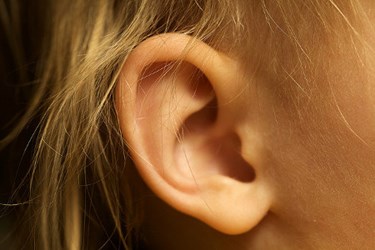FDA Guidance Seeks To Improve Access To Hearing Aids
By Jof Enriquez,
Follow me on Twitter @jofenriq

The U.S. Food and Drug Administration (FDA), via guidance that is effective immediately, will no longer require people 18 or up to secure a medical evaluation or sign a waiver before buying most hearing aids. The agency is also considering making more innovative, low-cost, over-the-counter (OTC) hearings aids available soon. Breaking barriers to access will help more of the approximately 30 million people in the United States with hearing loss, according to FDA.
“Today’s actions are an example of the FDA considering flexible approaches to regulation that encourage innovation in areas of rapid scientific progress,” said FDA Commissioner Robert Califf, M.D, in a news release. “The guidance will support consumer access to most hearing aids while the FDA takes the steps necessary to propose to modify our regulations to create a category of OTC hearing aids that could help many Americans improve their quality of life through better hearing.”
The agency based its decision on public comments from a 2013 draft guidance, an April 2016 workshop, and two reports that evaluated hearing aid innovation and access.
FDA's strict rules on conditions for sale were hindering access to hearing aids, according to the President's Council of Advisors on Science and Technology (PCAST), and the FDA-commissioned report by the National Academies of Sciences, Engineering and Medicine (NAS).
PCAST had called for greater support of innovations in hearing technologies to change the current market for hearing aids it described as “high cost and low innovation.” In October 2015, the council issued recommendations intended to facilitate hearing aid device innovation, and improve affordability and patient access.
The White House lauded FDA's new guidance document for air-conduction hearing aids seeking to improve access to hearing aids, which currently benefit only one in five Americans with hearing loss.
"Today, consumers can buy simple corrective lenses—reading glasses—over the counter, but the same is not true for hearing aids. And while hearing aids do not restore perfect hearing, allowing over-the-counter sale would facilitate the availability of more innovative, lower-cost products, enabling millions of people who are negatively impacted by hearing loss to better their daily lives," the White House stated. "Today’s announcement could start a movement toward over-the-counter hearing aids that will cost a fraction of the $2,300 apiece of current products, helping more of the 30 million Americans who need assistance."
According to FDA, it will consider PCAST and NAS recommendations on a regulatory framework for OTC hearing aids without the requirement for consultation with a credentialed dispenser.
FDA says it will continue to enforce the medical evaluation requirement for prospective hearing aid users under 18. Also, it says hearing aid labels must contain information about medical conditions that should be evaluated by a doctor, and instructions about hearing aids must be provided to consumers before purchase.
